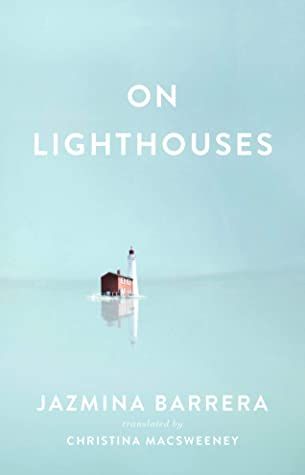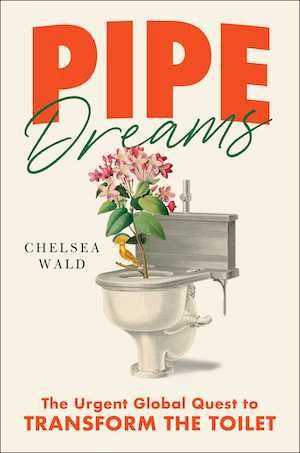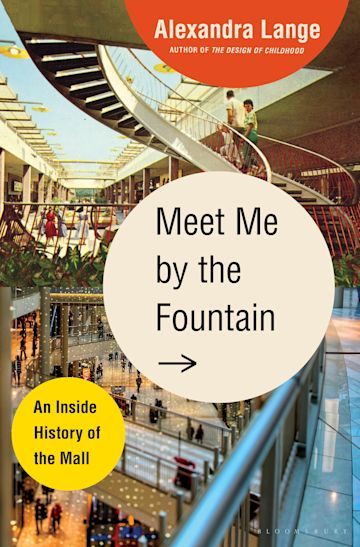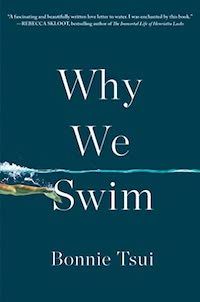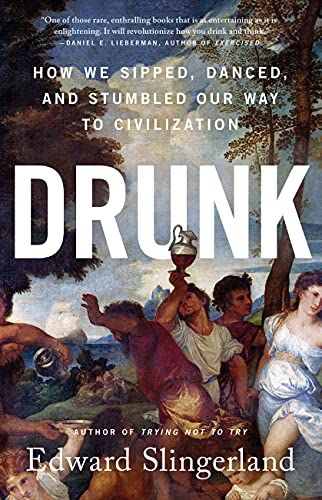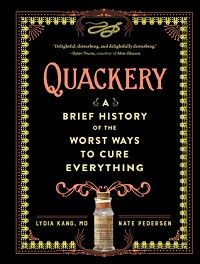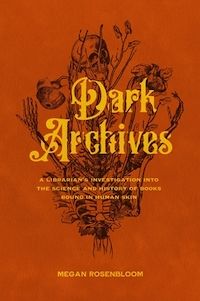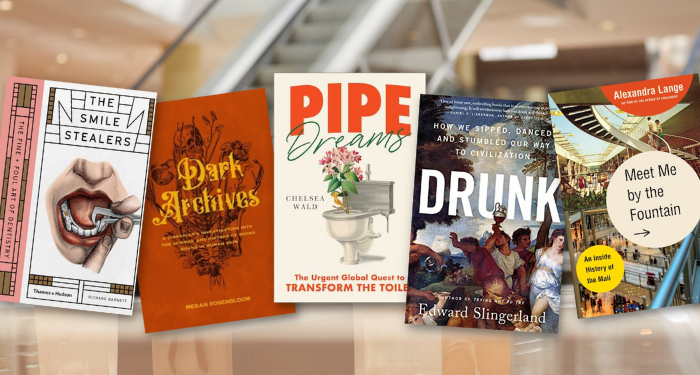
This content contains affiliate links. When you buy through these links, we may earn an affiliate commission.
Ah, the microhistory. Is there a better type of book than the one that, when you tell people what you’re currently reading, causes the asker’s eyebrows to raise into their hairline and/or eyeballs to pop out of their sockets? I didn’t think so. The most popular list of microhistories on Goodreads is titled “You Read a Book about WHAT?” and that really sums it up nicely.
A microhistory is a fun little sub-genre of nonfiction where the microscope is pointed on a minor facet of history. Why look at the history of capitalism and consumerism as a whole when you can instead focus on the wonder of the suburban shopping mall? Where’s the fun in a comprehensive study of medicine when you can read about the snake oil salesmen who sold rat poison as an aphrodisiac?
In this collection of peculiar microhistories, we’ll lead you on a journey through the genre, from quaint studies of lighthouses and getting drunk to bone-chilling histories of dentistry, bad medical experiments, and books bound in real human skin. Hopefully you’ll learn something new that’ll help you win your next round of pub trivia or make your eyes pop out — but only in a metaphorical sense.
On Lighthouses by Jazmina Barrera, Translated by Christina MacSweeney
I’ve never met a lighthouse I didn’t want to know more about. Jazmina Barrera dives into these beautiful structures that signal “people are here” throughout history and literature. On Lighthouses is both beautiful memoir and riveting literary history — all about finding a light.
Pipe Dreams: The Urgent Global Quest to Transform the Toilet by Chelsea Wald
Pipe Dreams is my favorite kind of microhistory: The one I didn’t know I desperately needed in my life. Chelsea Wald chronicles the taboo history of toilets without shying away from the bad parts — like disease and privilege and water waste — and shining a light on the scientists, engineers, and activists who are working toward a new, more accessible kind of sanitation.
True Story Newsletter
Sign up for True Story to receive nonfiction news, new releases, and must-read forthcoming titles.
Thank you for signing up! Keep an eye on your inbox.
By signing up you agree to our terms of use 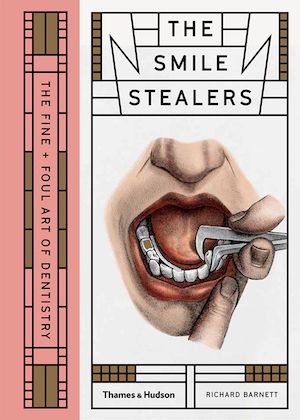
Smile Stealers: The Fine and Foul Art of Dentistry by Richard Barnett
Bet you never thought you’d find a book about your favorite place on earth. Smile Stealers is a chronology of the horrifying history of dentistry — from dentures and smiles in photographs to its use in forensics — complete with illustrations of tools and techniques to make your face hurt. Medical historian Richard Barnett doesn’t hold anything back in this fascinating book.
Meet Me by the Fountain: An Inside History of the Mall by Alexandra Lange
Is there a better place than the mall? They inspired works by George Romero and Joan Didion, as well as many a teenage nightmare. Today they stand as a dystopian relic of in-person consumerism. Alexandra Lange explores the invention and legacy of the modern shopping mall, from architecture to community, in Meet Me by the Fountain.
Why We Swim by Bonnie Tsui
It sounds obvious, but it’s worth mentioning: Humans aren’t natural-born swimmers. We have to be taught, first as a means of survival, and now as fun and sport. Why We Swim follows swimmers around the world, from Olympic champions to a fisherman who survived a six-hour swim after a shipwreck. Bonnie Tsui is a swimmer herself, making her the perfect person to dive into what it is that draws us to water.
Drunk: How We Sipped, Danced, and Stumbled Our Way to Civilization by Edward Slingerland
The history of drinking can get a little blurry, what with tales of bacchanals and pouring one out for the homies, but Edward Slingerland sets it straight in Drunk. Using all forms of science, medicine, and history, as well as literature — of course — he breaks down what it is that draws humans to love alcohol and how it can maybe even be good for us. Even more than that are tales of fruit flies, fish, and crows who are known to imbibe.
Quackery: A Brief History of the Worst Ways to Cure Everything by Lydia Kang and Nate Pedersen
Wild medical history is simultaneously the best and worst. Quackery takes a look at 67 real-life cures that were not actually cures. Like giving morphine to crying babies (yikes) or consuming tapeworms to lose weight (no thanks). Lydia Kang’s wit shines in this romp through bizarre medical experiments and scams through the ages.
Dark Archives: A Librarian’s Investigation Into the Science and History of Books Bound in Human Skin by Megan Rosenbloom
We saved the best for last. Did you know there were books bound in human skin? Megan Rosenbloom, a librarian and journalist, tells the tales of these books and the humans that brought them into the world. Dark Archives is both a scientific history and a forensic journey as Rosenbloom’s team tests books to see what they’re made of.
If you find yourself in need of more microhistories, look no further: here’s a list of ten and another of four to tickle your fancy.


